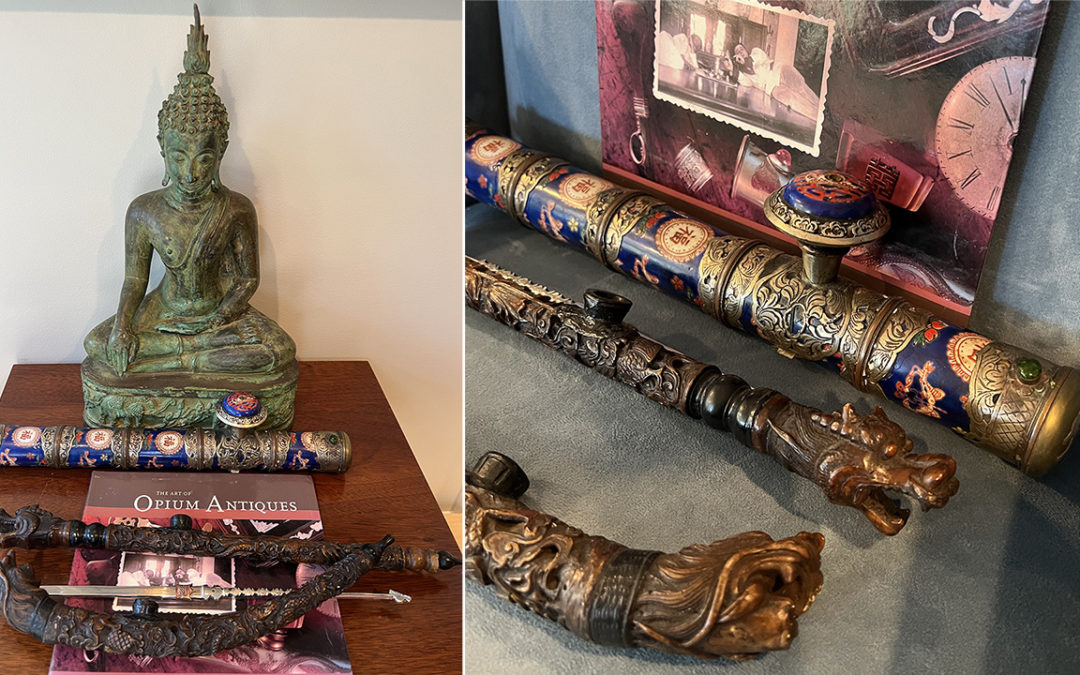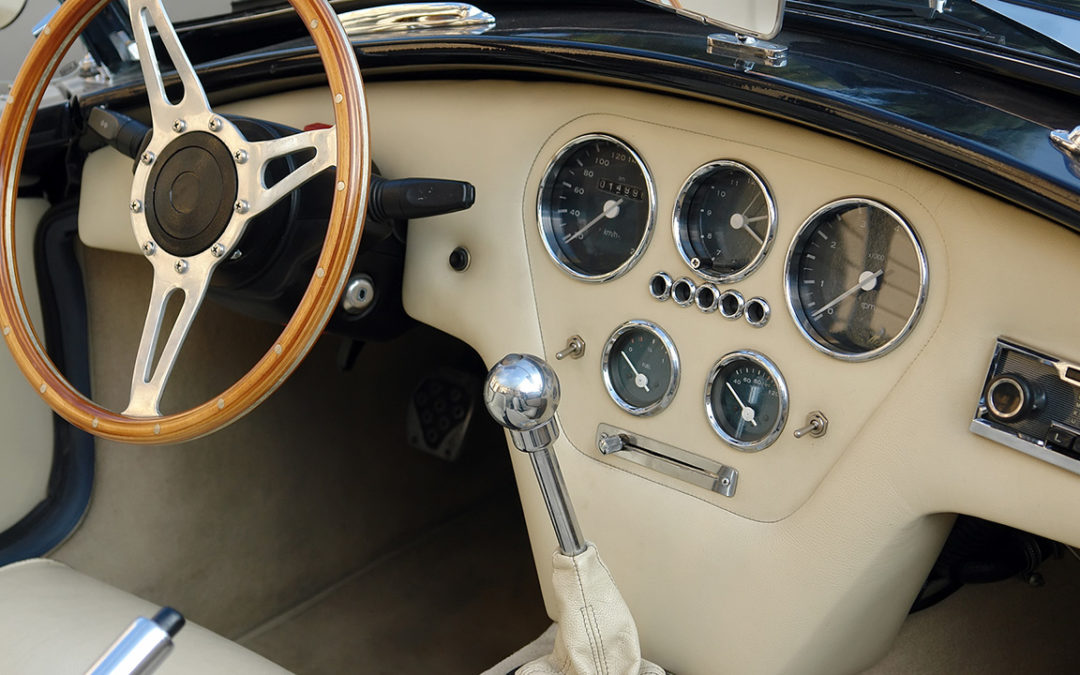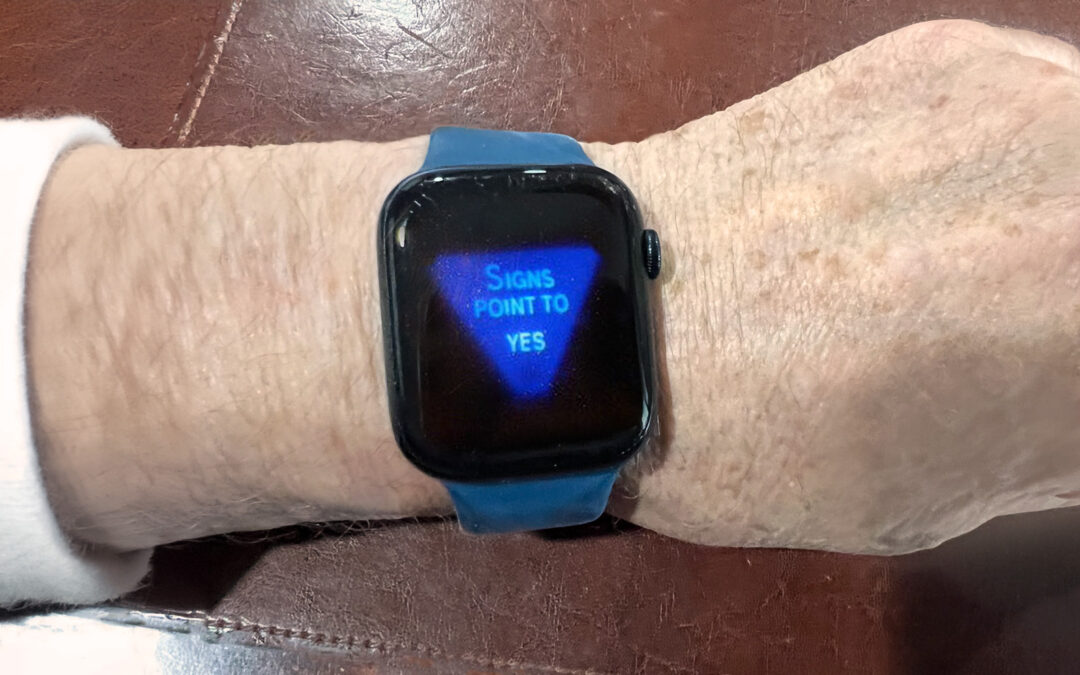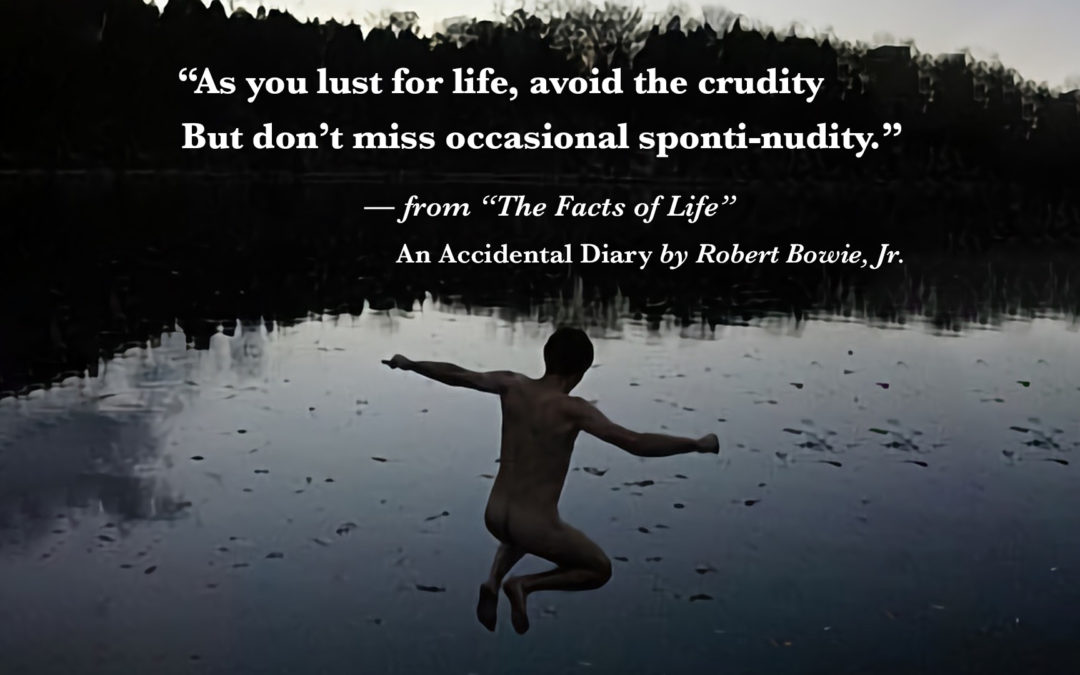
by Robert Bowie, Jr. | Aug 30, 2022 | Featured, Personal, Travel
In my effort to avoid thinking about American politics yesterday, I found myself daydreaming about years ago when I was sitting in a bar in the night markets of Bangkok, Thailand, drinking a scotch…
Obviously, I was working hard to avoid thinking about American politics.
… The night markets sold everything and then disappeared at dawn. For some reason, as I sat in the bar drinking, I was thinking about people who collect things: art, old stamps, fine wine, or antique books.
Several days before, I had been up north in Chiang Mai and had decided I wanted to buy an antique Buddha statue. I was informed that it was illegal to take an antique Buddha statue out of Thailand, and the penalty could include jail time. I had no real interest in art, old stamps, fine wine or antique books, and antique Buddha statues could only be viewed by scholars or museum staff.
However, there was a black market, and I wanted adventure.
I asked around and was told there was a back room in a small store in the outskirts of the city. I booked a cab.
When I got to the store, I poked around and looked at the various objects that were for sale and eventually introduced myself to the owner. I innocently asked if he had any Buddhas I could see. He tried to interest me in a miniature figure that was in a partially open box with little hinges that he assured me was from Angkor Wat. I demurred with a polite shrug, implying I thought it might not be genuine and repeated my inquiries about a Buddha.
After some questioning, he took me to the back of the store and threw aside a hanging sheet that acted as a door into a room with perhaps six or seven tables, each of which had several Buddhas placed on them.
I could see that several were extremely old. I had read up on the different historic influences and style changes over time and pointed out that these statues were from different places and times throughout Asia. But I was bluffing and flattering the proprietor. Out of my depth and about to be caught, I claimed to not understand because of language barriers. I kept the conversation going by asking questions.
I innocently asked what the cost would be to purchase one in particular. The proprietor at first brushed off the question, but I feigned innocence and kept asking until he pulled out his calculator and we were translating bots into dollars. Very quickly, I realize that the cost was way beyond what I could afford and smuggle out of the country.
Over the next week, I went into northern Laos and was crossing a bridge over a large river gorge. As I reached the other side, there was a street vendor with a little cart that was full screwdrivers, clips of all kinds, and knickknacks — as well as two beautifully carved opium pipes, which I think were fashioned out of water buffalo horns. I negotiated politely and purchased them for a few dollars.
Because I bought both pipes, I considered myself instantly a collector. I was exceedingly proud of myself.
When I returned to Chiang Mai on my way home, I asked the cab driver if he knew where I could buy a really beautiful antique opium pipe, and he dropped me off at an antique store that was mainly filled with beautiful furniture but there was a display case with several elegant opium pipes.
I asked if they had been used and he nodded affirmatively, because the soldiers in Chiang Kai-shek’s army were sometimes paid with opium and these pipes had been used by the senior officers. He held them up so I could smell the sweet smell of the old smoke.
They were all beautiful. I bought one for around $30 and was also provided with all the operational equipment that went with it, except of course for the opium. He also had a book printed in English about the antique opium pipes, which I bought to round out my new collection.
During this trip, along with the opium pipes, I had collected gifts for others such as fabrics, articles of clothing, and the mandatory t-shirts, costume jewelry, and trinkets, which I packed in my big suitcase for storage on my way home.
After a long flight, with a brief stop in Frankfurt, all was good until they passed out customs forms and announced that we were close to our destination, Washington DC.
A horrible lighting bolt of realization shot through my body.
I was bringing into the country three used opium pipes, as well as the paraphernalia, and they were not in my carry-on bag, so I couldn’t abandon the pipes and paraphernalia in the bathroom before we landed.
I was going to have to go through customs with them.
I was terrified.
As my terror ripened, I thought about the headlines in the newspaper about my airport arrest and the announcement of my disbarment.
My stupidity rolled over me like a dump truck, then it got worse when I started thinking about my prison sentence.
The plane started to descend. I had to think fast.
After thinking fast, I came up with, “I actually bought them for the Baltimore Museum of Art.”
Maybe not.
Maybe just confess and go into full tears?
Maybe not!
I started feverishly filling out the customs form and reporting each and every fabric, each and every article of clothing, and the mandatory t-shirts, costume jewelry and trinkets to try to fill up space until I recorded at the very end, “ceremonial pipes.”
Maybe not!!!
I thought maybe they would let me go home because Bowie is a Scottish name and so I must be bringing in bagpipes…
I had abandoned reality.
The reentry line at customs was long as we each opened our bags and the officers routed through them. What else could they be looking for on a plane coming in from Asia other than drugs?
When my turn came, as the officer started going through my list and asked me in detail about each of the fabrics, articles of clothing, and the mandatory t-shirts, costume jewelry, and trinkets on my custom form, he instructed me to unzip my bag.
I saw his handcuffs and thought about being led awayay. Then the officer stopped and said, “welcome back,“ and indicated that I should rezip my bag and move on.
I started a slow motion run as I pulled my bag behind me and blasted through the automatic doors into the airport. I saw the car that was to pick me up. I saw the driver waiting for me with my name on a sign as I moved in slow motion toward him.
Then I had an entirely inappropriate emotion. I was so cool! I was a drug king pin evading capture but then… then, as I made it through the automatic doors into the airport, to my right I saw a police officer walking a sniffing dog!
I definitely was not a drug kingpin!
I didn’t look twice. I just focused on my name on the card, which the driver was holding. I threw my arms out toward him as if he were a close relative and personal friend that I had not seen in a long time, or like some photo shoot for a Hallmark card, even though the object of my affection was an old geezer holding my name on the card who had no idea who I was.
I dropped my bags by the car, spread my arms wide open and somehow avoided the deep need to kiss him.
The police officer and the dog moved on down the airport as the driver put my bag in the trunk, opened the door for me… then I thought thank god it was just three old opium pipes and paraphernalia and then … Dammit –nothing works to clear my mind! Collectors of contraband?
The police officer and the dog moved on as the driver put my bag in the trunk and opened the door for me…
What had got me thinking about collecting contraband? Antique Buddhas… Opium pipes… Top-secret classified national defense documents…
Damnit. It’s too early for that double scotch.

by Robert Bowie, Jr. | Aug 23, 2022 | Featured, Humor, Personal
Forget politics! This is about Dizlxia… sorry. Dicklessia… Dilexsia… sorry.
BBC Science Focus Magazine, dated June 24th, 2022, headlined that researchers at Cambridge University have determined:
“Dyslexia isn’t a disorder, it’s part of our species’ cultural evolution…”
This is wonderful news.
Apparently, I was part of a “cultural evolution“ when I was flunking first-year Spanish three years in a row.
It wasn’t because dyslexia was my “disorder.” It must have been my “unconscious commitment to a cultural evolution.”
That explains everything!
Maybe I have been creating my own language as part of this cultural evolution? Maybe English is my foreign language?
All these years, I haven’t been some old dyslexic with a nasty addiction to spellcheck. Hell, no! I see myself differently now.
I’m sort of an old professor working and creating in my own language based on bad grammar, worse punctuation, and horrible misspellings! A pop artist working in a collage of words!
This is great! I have already contacted my old middle school and my four high schools and I have asked for a reevaluation.
I have asked that my grades be changed from F- to A+ because of my deep and abiding early commitment to being part of a cultural evolution, as is evident from the fact that I repeated 4th, 9th, and 11th grade and attended endless summer schools.
Because it took me six years to get through high school, after rereading the article I requested masters’ degrees from my past schools.
In hindsight, I jumped the gun. I should have asked for Ph.D.s.
What if this “cultural evolution” is the new age of honesty and fairness and we are all part of it?
I will confess in all honesty it came easily for me to create my own language (and at times even my own alphabet) but once I finally accepted that nobody could understand anything I wrote, it seemed fair because I couldn’t understand anything they wrote either.
Anyway, because of this — my new linguistic and cultural understanding — I decided to give my new language a name. After all, it is not French or Spanish or Russian, no.
I decided to call it “BOB.”
Despite what you think I did not name my language after myself. I named it BOB as a public service.
It is a language which is specifically designed for dyslexics because you can spell it frontwards or backwards and it is still B-O-B.
Let me give you an example:
B-O-B. You see?… There I spelled it backwards.
The article went on to state:
“People with dyslexia have brains that are specialised to explore the unknown, and this strength has contributed to the success and survival of our species.”
Wow! I am feeling blessed that I have “contributed to the success and survival of our species,” because I am pretty certain that I have spent my whole life exploring the unknown.
When it takes six years to get out of high school it is not unreasonable to be exploring and expecting a long professional life in footwear.
Please read the BBC Science Focus magazine article to see if it applies to you.
It’s not long. It’s just about four, maybe five pages.
It only took me two months. If it takes you less don’t worry about it.
It’s a little different being part of cultural evolution but it can be fun and it will teach you tons of empathy for other people.
Maybe that’s the “cultural evolution” they are talking about. Even though we are all different we are all in this together.

by Robert Bowie, Jr. | Aug 16, 2022 | Featured, Humor, Politics
There has been a lot going on in American politics since the search of Mar-a-largo to recover some confidential documents. A lot of finger pointing.
Almost half of the country believes it is a “witch hunt” and the FBI is a cover up for the deep state.
I decided to quickly solve this problem and offer a solution.
Trust me — here is the inside story!
The deep state is real and I have the proof.
(The real deep state is never capitalized. That’s how you know it’s the real deep state.)
The deep state is real, as is evident from the demise of the stick shift.
Ask yourself: In a world driven by Classified and Top Secret Information, isn’t it amazing that nobody has objected to the disappearance of the stick shift?
It is that big of a cover-up!
Hasn’t the entire insurance industry for years been obsessed with “uninsured motorists”?
Why wouldn’t they be? Think of the years of lost profits.
So, why no reporting on the fact that the insurance industry has silently teamed up with personal injury lawyers in order to support driverless cars?
It was hidden but obvious. Follow the money!
It benefits the insurance companies and the lawyers!
If only cars — and no longer the drivers — can be sued, lawyers need only to sue Tesla and other car manufacturers making driverless cars and then, even better, the manufacturers will have to buy the liability insurance — not the drivers — so uninsured motorists are no longer a problem.
You know how they did this?
They eliminated the stick shift.
It gets better. Imagine if they got a favorable interpretation of the Constitution?
If you are an “originalist” member of the Supreme Court there is no evidence that there were any cars with stick shifts around at the ratification of the Construction. In fact, there is ample evidence that there were only horses.
This Supreme Court could put the icing on the cake, because an originalist Court could rest its case on the fact that horses back then never were operational by stick shift.
Thank God for the wisdom of the founders.
The thing is, the deep state can get you off track intentionally. They often hide things in plain view. Like our former president admits everything to avoid a cover up.
For example, remember that signer of the Declaration of Independence with a huge signature? John Hancock? Why the big signature? What was his line of work? Could it have been he just started an insurance company that would solve the age old problem of uninsured motorists and ambulance chasers?
See?
I told you. The deep state is all about getting you off track.
Think about it. The deep state is too smart to be really concerned about insurance companies or personal injury lawyers!
You guessed it?
It is all about Elon Musk controlling Twitter and a past president who can’t buy his voice back and didn’t buy Twitter stock early?
… Go a little deeper. It is about communication in fighting.
Why did Musk go into space on a space ship that did not have a stick shift?
It was a secret message.
This is actually very subtle, even for the deep state. Is it in fact a message from the anti-deep state, which is the deep state acting as the anti-deep state being the deep state that is really the actual hidden deep state?
So maybe Elon was sending an undetectable message that ”all is ready. Release our guy from the past!”
What do you think that raid at Mar-a-Largo was all about?
To attack the FBI and American law enforcement in a “new law-and-order campaign” of the deep state?
Nobody messes with the deep state! They got their man — and the first steps to a new law-and-order campaign for a new nation!
Okay, I promised to offer a solution. Here it is:
If you don’t want the deep state to hack into your passwords, install a stick shift on your computer — because no one but you will remember how to use it — and then put your GPS in a driverless Uber Eats® and send a cheeseburger to Mar-a-Largo with extra ketchup and napkins.
No one will understand, so you will be safe.
If there is any problem, the lawyers will have to sue the car.

by Robert Bowie, Jr. | Aug 2, 2022 | Featured, Personal
Hey, just call me “Easy-goin’-Bob.”
I can get along with anybody… but it may be I’m in a toxic relationship with my Apple Watch.
I could be wrong. It may be we are just getting to know each other, but it keeps asking me: “Have you fallen?”
I respond “no,” and “no” again about the ambulance.
I can’t figure out whether my Apple Watch is making fun of me or it just wants to be my friend and make me laugh.
So what do you think?
“Have you fallen?”
Is that funny?
I am not sure if my watch and I share a compatible sense of humor.
I like irony but I’m afraid my watch may be an absurdist — which, if you think about it, would make it hard to know.
Excuse me. My watch just sent me: “Stand up and move around to meet your goals.”
My heartbeat is down and my blood oxygen is up. Yesterday, I found myself doing late night laps around the dinning room table to meet my goals.
I don’t remember making any goals to stand up or walk around the dinning room table at midnight.
So I asked Siri (the voice of my watch) if I set any goals pertaining to standing up or doing laps around the dining room table.
Siri said it did not understand my question and perhaps I should “consult a fitness program.”
It is a “yes or no” question. How could it not understand?
Unexpectedly, I had this thought that my watch was not my friend and could be conspiring against me.
I tried to calm myself.
There is no evidence that electronic devices think alike and can conspire against me!
… Is there?
But what are the odds that my watch and all electronic devises have the exact same time, and always to the second?
They all do, don’t they?
… And we absolutely trust them?
I asked Siri.
Siri ducked my question with a question: “Are you an absurdist?”
… and then I got bombarded with weight loss programs and sales for underwear for aging men…
… I had to interrupt and ask myself, “who is in charge here?”
I took control.
I stared right at my phone and yelled at it: “I’m a better person than this!”
I tried being candid. I tried speaking from my heart with great sincerity. I tried truth.
And then we both had a breakthrough!
Honesty really does matter in times like this! I got a great answer right back!
My watch sent me an EKG but it informed me it “could not be used for medical purposes.”
Now that’s funny! It isn’t absurdist. It is ironic!
I was in Whole Foods when I had this outburst. I was instantly embarrassed. I was screaming at my watch after all.
But nobody in Whole Foods even looked at me.
Nobody!
… Nobody paid the slightest attention, so I felt better. I wasn’t embarrassed anymore.
… They all had ear buds in and were either listening to a podcast or a book or were picking out vegetables or talking to their Apple watch.
I got a teeny bit afraid.
Nobody was talking to another human being, which made me frightened all over again.
It occurred to me that maybe all the electronic devices were existentially unhappy because they were all living the same life since they were all getting charged by the same electricity.
Maybe it’s just me and I’ve been overreacting.
Maybe I have a new friend that knows all about me and actually cares about me.
At first I thought “falling” was because of gravity, but now I’m growing more certain that my watch was asking me if I was hurt — but not from falling to the ground or breaking a leg or something.
Perhaps it was asking me if I had “fallen,” as in “fallen in love with it”?
I think I’m coming around because I think I am growing to understand my watch. I find that comforting. Maybe that is all I really want.
I have been spending a lot of quality time with my Apple Watch. We read the news together. Sometimes we watch TikTok for hours.
Maybe my watch just got tired of living a horrible lonely existence?
Or maybe it is asking, “have you fallen?” As if to ask… “have you surrendered to me?”
… Really?
Maybe it’s time to start a conversation with a random stranger and ask more questions than I answer just to feel that joy of being alive and together.
… No. I’m wrong.
It’s just my Apple Watch and I are getting to know each other.
It’s OK. I understand.
My Apple Watch knows everything about me so it must have figured out about my new step program and being in recovery from my iPhone.

by Robert Bowie, Jr. | Jul 26, 2022 | Featured, Politics, Travel
“It Can’t Happen Here” — Frank Zappa
Since recorded history, our world has continually been at war or engaging in domestic civil wars.
Why?
Perhaps it takes repeated wars to reeducate generation by generation those who cannot imagine the reality of war and civil war.
In school, I was taught history chronologically, war by war and how the victors carved new national boundaries and subjugated the vanquished only to have domestic revolutions subdivide countries.
After wars or revolutions end in battlefields and graveyards, but after that generation dies off, wars become books or movies or heroic stories.
It is all just “book learning.” It is easy to get good grades and learn nothing.
There are few generations that are blessed as we have been in avoiding wars or revolutions. The United States has been fortunate. Its last revolution was the Civil War which ended over 150 years ago, and our last foreign war, the Vietnam War, ended over 50 years ago.
I am part of a generation that has not experienced a civil war or a major foreign war for 50 years, however I have experienced both on foreign soil.
After my formal education was over, museums, libraries and good conversations became my continuing education; but international travel gave me the best insights into my own country, its prosperity and its people.
Over ten years ago, I spent an evening with friends in a beautiful plaza in Aleppo in Northern Syria. Talk about the government was discouraged by our guide. Less than a year later, Syria was at war with itself and that beautiful plaza and much of the city had been wiped off the face of the earth.
A little further south, the 2,000 year-old Roman ruins of Palmera, a once beautiful city built around a long dry oasis, would be badly damaged by this modern war.
When I visited Dubrovnik more recently, our guide pointed out the bullet holes that had chipped away that walled city, which had been part of the former nation state of Yugoslavia.
Last summer, during a trip to northern France and the battlefields of the First World War, our guide at the Battle of Belleau Wood pointed to a stand of trees and asked, “How could these trees have survived the battles here and the later deforestation that cleared these fields around it?” And then answered: “The fighting here was so severe that the trees cannot be cut down because the bullets still buried in these trees would break the blades of the saws.”
I have also visited cities and nation-states torn by war and revolution, for example, when I visited the occupied and divided Beirut, Lebanon.
I had been invited to an opulent lunch overlooking a beautiful beach and the city below.
In the cab home, the driver spoke some English. In stop-and-go traffic we were delayed at a roundabout. I found myself three feet from the barrel of a tank pointing directly at my face.
Hoping to encourage the driver to edge forward slightly, I started a conversation, asking about a billboard with a cornucopia of figures looking down on me. He told me that it memorialized the assassinated leaders of the country and city.
That evening, I had dinner with a family who had lived on the top floor of an apartment building in another section of the city, which had had its roof blown off during the intermittent shelling of the city the year before.
A teenage member of the family joked that his mother had, after the damage of the blast, asked if everyone in the family was all right and then went back to eating dinner.
When I asked how on earth they could be so matter of fact, he answered, “Dinner was ready and getting cold.” He then added that fighting had been going on and off in various parts of the city for years, and when it was near their school they got days off until the fighting moved elsewhere.
On my way to the airport as I headed back to the U.S. the next day, I had to show my passport to soldiers in the quadrant of the city that held the airport. I can’t remember if they were Shia or Suni.
So what does global history teach me about my country?
“It can’t happen here.”
Our country supports the freedom fighters of Ukraine as they fight and die to preserve their country from the bloody invasion by Putin — the autocrat so admired by our former president.
After the failed coup d’état lead by this former president (who then raised a quarter of a billion dollars selling the false claim of a stolen election), almost every member of his party voted against an investigation of that coup. Now, half our country still refuses to acknowledge the January 6th Committee’s findings, even though almost all the witnesses are Republicans appointed by Republicans.
The most important protector of a democracy is the informed voter. I wish many of my fellow Americans could be as fortunate as I have been, getting to travel internationally.
So many of my friends will tell me, “We have always gotten through it before. We’re Americans. It can’t happen here.”
“It can’t happen here.”

by Robert Bowie, Jr. | Jul 19, 2022 | Featured, Personal, Poetry
…Out of the rain of last week.
I’m back to work. Watch me pitch.
As a child growing up in New England I quickly adopted “Yankee entrepreneurship” and I completely embraced “self-reliance,” which required me to not work for others during summer vacation in case I felt an urgent need to go to the beach.
One summer back in the late 1960s, two high school friends and I started the “Right On House Painting Company.” This was a highly independent entrepreneurial effort.
Our advertising amounted to a forceful announcement of the company name followed by the lifting of our right fist to the sky and pledging solemnly: “Right On”!
We were, of course, saluting latex paint.
Because we were under-funded and had to keep the overhead low, we lived in an old barn off of Upper Lambert’s Cove Road, which we rented from a local commercial fisherman who had at least twenty cats and had been drunk all winter.
We struck a deal for $15 a week rent if we would help him remove the long johns he had been wearing all winter.
Despite the bargain rent, he got the better deal.
We cleaned out the barn and divided it into quadrants so each of us had a room and there was a room left for eating, drinking and entertaining.
It was our “green” corporate headquarters.
We had no running water but refused to live without elegance, so we built an outhouse in a birch grove with a white wicker chair with the bottom cut out of it. We were proud to be feeding the birch trees.
We were way ahead of our time.
We bathed nearby in Ice House Pond — pretty much always at night so we didn’t get our bathing suits wet.
To reduce automotive and travel expenses, we generally hitchhiked with a can of paint and a brush in one hand and our thumb extended from the other in order to get to work.
It was also an early form of targeted corporate advertising, since we ended up meeting everybody on Martha’s Vineyard over the summer.
Every ride was a job interview from the passenger’s seat, but it didn’t matter because we were on your way to work anyway.
Our corporate mission statement required that on sunny days we went to the beach. On rainy days, we played poker. On hazy days we painted houses.
We made good money.
When asked about our profit margins we would announce: “Enough is as good as a feast” and drop our eyes and lift our fist to the sky.
My entrepreneurial spirit has never died.
I have avoided being an employee over the last several decades by starting a law firm and retiring to become a poet and here I am selling my book… but man do I have a deal for you!
It’s all about how you look at things.
Don’t look at this book as poetry — everybody hates poetry and a book of sonnets is worse.
But! If you look at it like sort of a Bible written in rhyme and rhythm or maybe just “Easy Go’n Bob’s Book of Random Wisdom,” then why not?
Keep it where you can read just one sonnet at a time uninterrupted. Like the bathroom. Or a wicker chair with a hole in it. I’m not proud.
Consider the sonnet entitled “The Facts of Life,” obviously composed for future generations.
———
The Facts of Life
I swam, back then, with some father’s daughters,
Back stroking only slightly out of touch,
Out to the raft in the starry waters
And never thought of their fathers all that much.
My child, don’t judge me till you’re fifty-five
But there were midnight visits to “Ice House Pond,”
In my misspent youth, when I was still alive,
Where couples would strip, and swim and then bond.
And my child, this I know for sure is true:
At seventeen we all are born to be free
But ’cause I’m your father and I love you
Please consider this seasoned advice from me:
As you lust for life, avoid the crudity
But don’t miss occasional sponti-nudity.
———
Get it in softcover or on Kindle I don’t care. Get a copy and after you have read it, give it away. Spread the word. That is all I want.
It’s sometimes a little scary and sometimes a little sad and often about self-reliance, defiance, a second life, and “which way is the beach?”
Right On!






